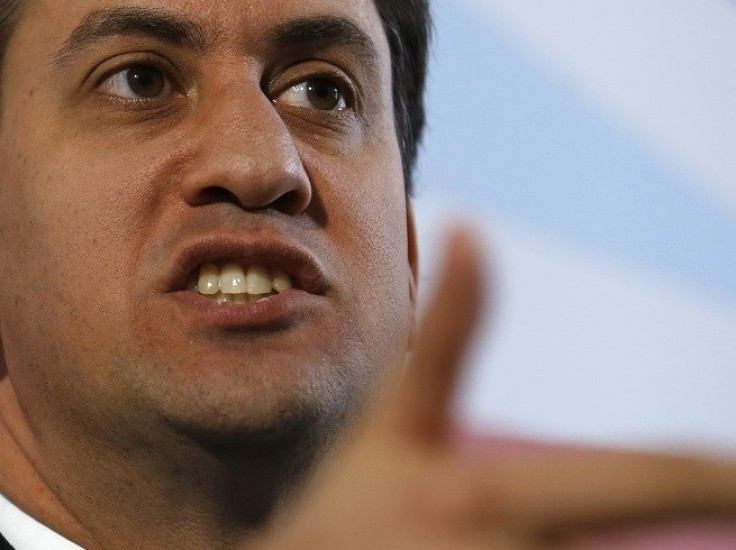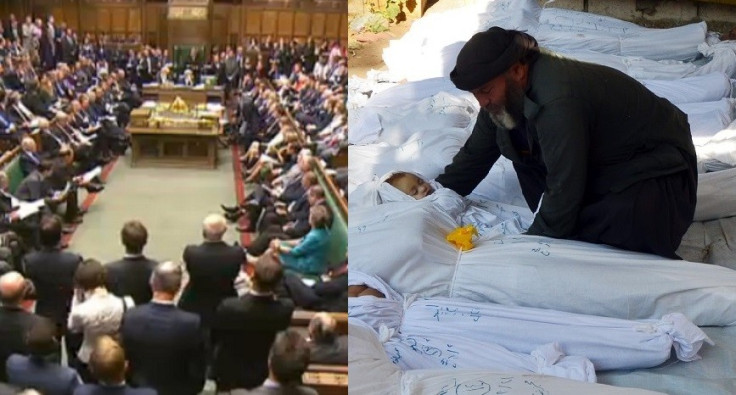Syria Crisis Debate: Ed Miliband's Finest Hour?
Labour leader scored a significant victory forcing the government to back down over plans for swift military action against Syria

Britain's opposition leader Ed Miliband scored a hugely significant political and personal victory when he forced the Coalition government into abandoning its demands for parliament to sanction military action against Syria - a move most believed would have seen strikes launched with UK involvement within days or even hours.
After a difficult summer which saw his leadership of the Labour party under serious question from his own side, Miliband "saved himself", as one former Labour minister told IBTimes UK, by seizing control of the foreign policy agenda and ensuring Britain will not be hitting Assad before a series of major hurdles have been leapt.
The most important concessions he won from prime minister David Cameron were that there should be no action before weapons inspectors have reported back to the UN and that there must be a second vote in the House of Commons before any military action.
But the biggest victory in this continuing crisis was actually scored by the British public who, a YouGov opinion poll for The Sun newspaper yesterday suggested, were against military action by a factor of two to one. Politicians on all sides may well have their own doubts about the apparent rush to action being pursued by Cameron, presumably to keep in step with US plans, but they are also acutely aware of public cynicism about such actions in the wake of the Iraq war, exactly a decade ago.
And it was the long shadow of Iraq that hung over the entire parliamentary debate as Cameron insisted time and again that, on this at least, he has no intention of being seen as the "heir to Blair". He was not about to take sides in the civil war, invade Syria or seek regime change but wanted only to respond to a war crime in order to "deter and degrade" Assad's chemical weapons capabilities.
Recalling that day in 2003 when the then prime minister Tony Blair set out his case for action against Saddam Hussein, Cameron told MPs: "I wanted (then) to listen to the man standing right here and believe everything he told me. "
And, in a sentence that most potently summed up the effect that war had on the British public, he added: "The well of public opinion was well and truly poisoned by that episode." The remark brought rumblings of agreement from all sides. In other words, voters are not about to be fooled again, they want some pretty powerful convincing before they will be willing to be drawn into another Middle East conflict, no matter how heart-rending the images of atrocities are.
That sentiment helped defeat Cameron and lead him to making concessions to Miliband and perhaps as many as 70 of his own backbench MPs threatening to vote against him in the Commons.
It was also that public scepticism and demand for clarity and rock-solid reassurances that moved Miliband to act. For many it seems entirely reasonable to wait until weapons inspectors have done their job, to see clear evidence that Assad was indeed responsible for the atrocities and to have clear, specific and realisable objectives for any military action.
Miliband Moved the Goalposts
But Miliband stood accused of "playing politics" with the issue and, later, Cameron's spokeswoman accused the Labour leader of "flip-flopping" after initially appearing to offer support for Cameron's call for military action.
"The Prime Minister has been setting out a compelling case in there [the Chamber]. We have seen Ed Miliband flip-flopping and completely incapable of making up his mind," she said.
Another spokesman added: "The goalposts were changed dramatically and significantly yesterday."
Last night, David Cameron's advisors could not contain their fury at Labour's decision not to back military action in Syria until after the conclusion of a UN inspection and report.
"No 10 and the Foreign Office think Ed Miliband is a f***ing c**t and a copper-bottomed shit. The French hate him now and he's got no chance of building an alliance with the US Democratic Party," one government source told The Times.
But, despite the obvious ill-feeling between the government and the Opposition, this debate lacked much of the fire that had been the mark of that pivotal Commons session in 2013.
Although, just as with Blair on that day, this could have had the power to fatally undermine Cameron's premiership.
Both Cameron and Miliband set out their respective cases with little real passion: Cameron arguing the world could not sit by and allow Assad to get away with the use of chemical weapons as it would send out a signal such atrocities would always go unpunished, and Miliband that there was an absolute need to allow inspectors to do their work and for any action to be agreed in a "clear and measured way".
Ultimately, in another echo of Blair's Iraq statements, Cameron insisted there could never be 100% certainty about the outcome or consequences of military action but that, to do nothing, would be the worst possible course. It was, he repeated a number of times, a matter of judgement.
In the next few days and weeks, it is the judgements of both the leaders that will be tested. The outcome will be critical for both their futures.

© Copyright IBTimes 2024. All rights reserved.






